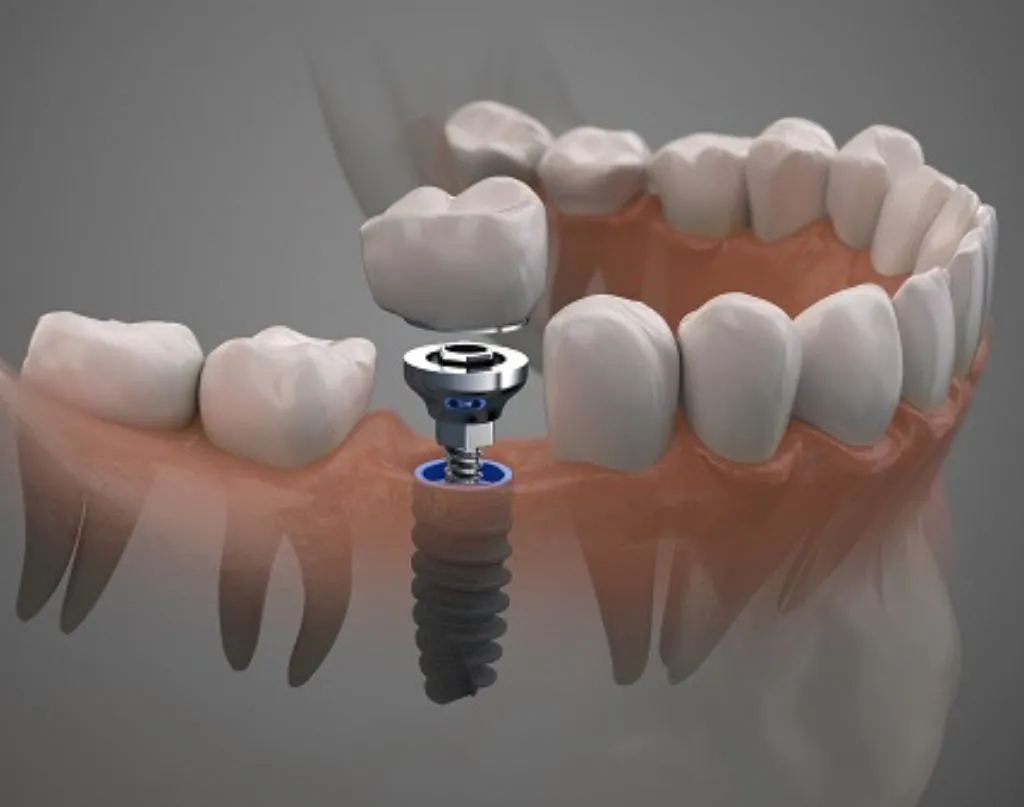DENTAL IMPLANTS FOR MISSING MOLARS: WHAT PATIENTS SHOULD KNOW
Losing a molar can be a painful and frustrating experience, especially if it impacts your ability to eat, speak or smile confidently. Dental implants are a popular treatment option for people with missing teeth, including molars. In this blog article, we will discuss everything patients should know about dental implants for missing molars.
What are dental implants?
Dental implants are artificial teeth roots that are placed in your jawbone to support a dental restoration, such as a crown, bridge, or denture. They are made of titanium or titanium alloy, which is biocompatible and fuses with your jawbone over time through a process called osseointegration. Dental implants are considered the gold standard for tooth replacement because they look, feel and function like natural teeth.

Why choose dental implants for missing molars?
There are several reasons why dental implants are a popular treatment option for missing molars:
Prevent bone loss: When you lose a tooth, the bone that supported it begins to deteriorate over time. Dental implants stimulate the jawbone and prevent bone loss, helping to maintain your facial structure and prevent further tooth loss.
Restore function: Missing molars can make it difficult to chew and speak properly, which can impact your quality of life. Dental implants restore your ability to eat, speak and smile with confidence.
Long-lasting: With proper care, dental implants can last for decades or even a lifetime, making them a cost-effective solution over time compared to other tooth replacement options.
Improve oral health: Dental implants don’t require the removal of healthy tooth structure, as with a dental bridge. They also don’t rely on adjacent teeth for support, which can cause additional wear and tear on those teeth.
The dental implant procedure
The dental implant procedure typically involves the following steps:
Consultation: Your dentist will evaluate your oral health and determine if dental implants are a suitable treatment option for you. They will also take X-rays and 3D images of your jawbone to determine the optimal placement for the implant.
Implant placement: The implant is surgically placed into your jawbone under local anesthesia. During the healing process, the implant fuses with the jawbone through osseointegration.
Abutment placement: Once the implant has fused with the jawbone, an abutment is attached to the implant. The abutment is a connector piece that attaches the implant to the dental restoration.
Dental restoration: A dental crown, bridge or denture is attached to the abutment, completing the restoration process.
Dental implant candidacy
Not everyone is a suitable candidate for dental implants. Here are some factors that may impact your eligibility:
Sufficient jawbone density: Dental implants require a certain amount of jawbone density to support the implant. If you have experienced significant bone loss, you may require a bone graft before the implant can be placed.
Good oral health: Patients with gum disease or other oral health issues may not be suitable candidates for dental implants. Your dentist will evaluate your oral health before recommending dental implants.
General health: Patients with certain medical conditions, such as uncontrolled diabetes or autoimmune diseases, may not be suitable candidates for dental implants.
Non-smoker: Smoking can increase the risk of implant failure, so patients who smoke may not be suitable candidates for dental implants.
Dental implant aftercare
After your dental implant procedure, it’s important to follow your dentist’s aftercare instructions to ensure a successful recovery. Here are some tips for caring for your dental implants:
- Practice good oral hygiene: Brush and floss your teeth regularly to maintain good oral health and prevent infection. Use a soft-bristled toothbrush and non-abrasive toothpaste to avoid damaging your dental restoration.
Avoid hard and sticky foods: During the healing process, it’s important to avoid hard and sticky foods that can put stress on the implant and disrupt the healing process.
Attend regular check-ups: Your dentist will schedule follow-up appointments to monitor the healing process and ensure that the implant is functioning properly.
Quit smoking: Smoking can increase the risk of implant failure, so it’s important to quit smoking if you want to ensure the long-term success of your dental implants.
Alternatives to dental implants for missing molars
While dental implants are an effective treatment option for missing molars, there are other alternatives that you may want to consider. Here are some of the most common alternatives:
Dental bridge: A dental bridge is a restoration that uses adjacent teeth to support a replacement tooth. While this option is less invasive than dental implants, it requires the removal of healthy tooth structure from the adjacent teeth.
Partial denture: A partial denture is a removable restoration that replaces one or more missing teeth. While this option is less expensive than dental implants, it can be uncomfortable and may need to be replaced over time.
Do nothing: While it may be tempting to simply live with a missing molar, this can lead to further dental problems down the line, such as gum disease, tooth decay, and bone loss.
The cost of dental implants for missing molars
The cost of dental implants for missing molars can vary depending on a variety of factors, including your location, the number of implants needed, and whether any additional procedures, such as a bone graft, are necessary. In general, dental implants can be more expensive than other tooth replacement options, but they offer a number of benefits that can make them a worthwhile investment over time.

Finding a dental implant provider
If you are considering dental implants for missing molars, it’s important to find a qualified dental implant provider who has experience with this type of procedure. Here are some tips for finding a dental implant provider:
Ask for referrals: Ask your dentist, friends, or family members for referrals to a reputable dental implant provider.
Check credentials: Make sure that the provider is licensed and has experience with dental implant procedures.
Read reviews: Look for online reviews of the provider to get a sense of their reputation and patient satisfaction.
Schedule a consultation: Schedule a consultation with the provider to discuss your options and get a sense of their approach to patient care.
Frequently asked Molar Implant questions
- How long does the dental implant procedure take?
The dental implant procedure typically takes several months to complete, as the implant needs time to fuse with the jawbone through osseointegration.
- Does the dental implant procedure hurt?
The dental implant procedure is performed under local anesthesia, so you should not feel any pain during the procedure. Some patients may experience discomfort or soreness in the days following the procedure, but this can be managed with pain medication.
- How long do dental implants last?
With proper care, dental implants can last for decades or even a lifetime.
- Are dental implants covered by insurance?
Dental implant coverage varies by insurance plan, so it’s important to check with your insurance provider to see if dental implants are covered under your plan.
- Are dental implants safe?
Dental implants are considered a safe and effective treatment option for missing molars, with a success rate of over 95%.
Dental implants are an effective and long-lasting treatment option for missing molars. They offer a number of benefits












